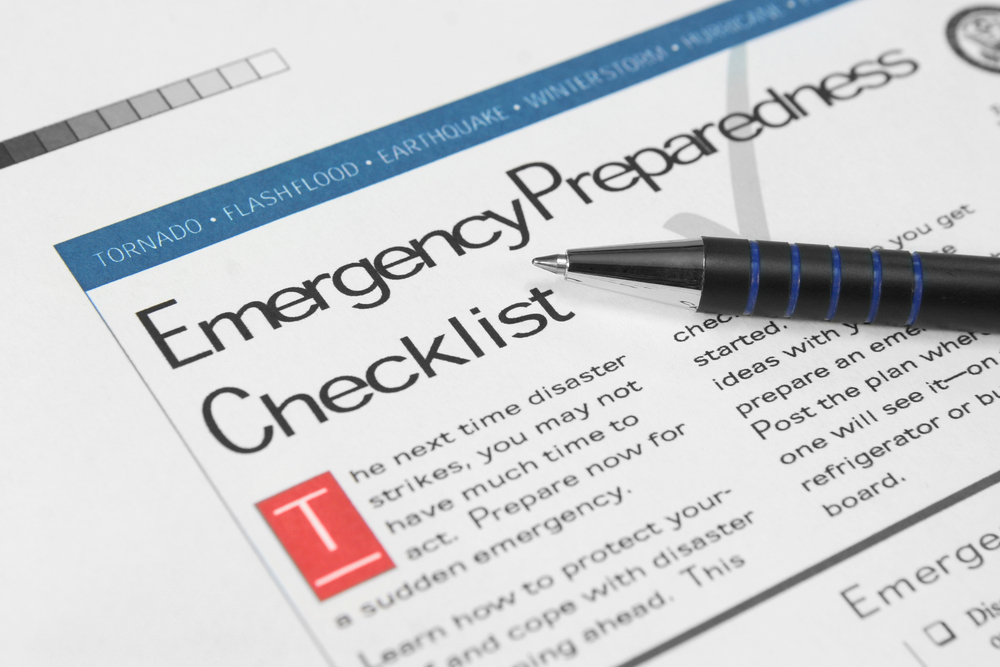Creating Emergency Action Plans (EAPs) as a College Student
This spring, college students around the world faced an unprecedented experience: they were forced to stay at home and finish out the semester virtually due to the rapid and widespread COVID-19 outbreak. This caused quite a hurdle for many college students, as they, along with their parents and educators, were simply unprepared for such a quick and drastic change. While you may have gotten through this rough patch, there may have been several lessons learned and "I wish I'd planned for.." moments along the way.

While it's hard to predict something like COVID-19 and all the hardships it may have caused (financial setbacks, finding a place to stay, establishing new routines to stay on top of your school work, etc.), there are many other emergency situations that are more common (natural disasters, unexpected medical emergencies, job loss, and so on) that would be made easier to navigate by having an Emergency Action Plan in place for.
What is an Emergency Action Plan (EAP)?
You may have heard of an Emergency Action Plan in your workplace (they're very common in places like hospitals, schools, businesses, public spaces, etc). This is typically a formally documented strategy that outlines what steps need to be taken should an unexpected emergency or disaster (like a fire, tornado, robbery, or pandemic) strikes. Emergency Action Plans act as a step-by-step guide for helping those involved get to safety and get through whatever situation they're in.
What kind of situations may I want to have personal EAPs in place for?
While we certainly hope none of the following situations are something you have to deal with, having a detailed plan in place for each of them will give you peace of mind should they ever occur.
- A car breaking down. Make sure you know all the steps you'd need to take in the event your car breaks down, especially far from home or in an unfamiliar place. What would you want to have on-hand, and who might you ned to call?
- Loss of housing. Whether you're forced off campus due to a global pandemic or you simply can't handle sharing a house with your current roommates, develop a plan of action for staying elsewhere.
- Loss of a job. Jot down the immediate options you'd have available to you if you were to lose your current job. Where would you cut your budget? Could you borrow money from your parents? Would you need to move back home?
- Loss of a parent or guardian. Talk with your parents about their wishes and wills, and find out all of the key contacts and documents you'd need to turn to in the event they passed away unexpectedly.
- A hospital stay or costly medical emergency. If you were to spend a significant amount of time and/or money in the hospital due to an accident or unexpected illness, what bases may need covered in your absence? What options would you have available to you to handle the costs, lost time at school or work, etc.?
- Natural disasters. If a massive storm, tornado, earthquake, or fire strikes and causes major damage to your home or personal property, consider all of the steps you'd need to take to find temporary housing, who you'd need to call (insurance, landlords), and what steps you'd need to take to get back on track.
- Robbery. If your car or home were broken into and important valuable stolen, would you have your bases covered? Consider whether you have insurance, whether you've documented your most valuable possessions (photos, identification numbers, proof of purchase) and make sure you have the appropriate numbers in your contacts for making quick calls to following a robbery.
What should EAPs include?
Emergency action plans might include:
- Information about any family, friends, or pets that would be affected/involved.
- Emergency phone numbers for physicians, parents, family, and emergency services.
- Temporary housing addresses/options.
- Meeting points where you'd meet up with others in case you are separated.
- Designated emergency contact persons, that you'd want to be communicated with on your behalf, should you be incapable.
- An emergency kit, containing any items you may need given the situation. A few universal things to keep in mind: bottled water, basic first aid items, an extra phone charger, a flashlight, a blanket, food with a long shelf-life.
Keep in mind that different types of emergencies will require different plans. There are plenty of resources online to help you determine what an EAP might look like from one situation to the next.
Resources & Tools
- Ready.gov
- Red Cross
- Red Cross Store (where you can buy an emergency kit!)
Every campus/college and workplace should have an EAP in place for the safety of their students and employees. Reach out to your school administrators or your employer to find out the details of their EAP and ask for a copy (or where you can find it posted).
Questions?
Questions about what kind of emergencies you should have an EAP in place for as a college student? Our Youth & College Support Team is happy to help! Feel to give us a call at 260.399.8265 or send us an email at college@trfcu.org.
